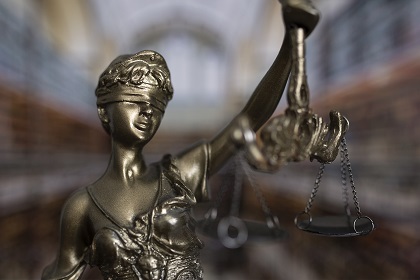There’s a good reason why Bill Cosby’s conviction was overturned
By KevinMarcilliat, In Sex Crimes, 0 CommentsIf you’re among those who believe that Bill Cosby is probably guilty of drugging and sexually assaulting women, the news that his conviction has been overturned may be infuriating. The comedian, now 83, was convicted in the case of a Temple University employee who said that Cosby drugged and molested her at his mansion near Philadelphia.

What could convince a court to overturn this first conviction in the #MeToo era? In short, due process. Or, if you like, prosecutorial misconduct.
For fundamental fairness, people must be able to rely on prosecutors’ promises
Defendants have the right to rely on prosecutors’ promises when deciding whether to plead the Fifth and refuse to testify in order to avoid self-incrimination. Prosecutors are supposed to be honest, ethical actors in the criminal justice system. They are supposed to respect defendants’ rights and seek justice, not just win cases.
In this case, the Temple University employee sued Cosby for damages before the state of Pennsylvania prosecuted him. Cosby could have pled the Fifth in the civil case if it was likely he could be charged for behavior that his truthful testimony would reveal. However, in 2005, Bruce Castor, the top prosecutor in Montgomery County, where the civil case was brought, promised Cosby that he would not be charged.
Cosby made damaging admissions during the civil case about the Temple University employee and other women. The Temple University employee later received over $3 million from Cosby in a settlement of the case.
When Cosby was arrested and charged in 2015, Castor testified at a court hearing that he had promised not to prosecute Cosby because he wanted the comedian to testify in the civil case. He had not, however, put that agreement in writing other than announcing it in a press release.
At Cosby’s appeal, Castor acknowledged that he had meant to shield Cosby from charges “for all time.” However, Castor’s successor, Kevin Steele, apparently believed that the decision not to charge Cosby could later be revisited.
Steele decided to charge Cosby despite the prior agreement with his predecessor. Cosby was ultimately convicted.
On appeal, the Pennsylvania Supreme Court found that Steele had violated the non-prosecution agreement made by Castor. The high court said that “denying the defendant the benefit of that decision is an affront to fundamental fairness, particularly when it results in a criminal prosecution that was foregone for more than a decade.”
What happens now?
According to an analysis by the Associated Press, it is highly unlikely that Cosby will be tried again. The Pennsylvania Supreme Court’s decision specifically bars Cosby from being tried again on for the same complaint. That is because tossing out the case is the “only remedy that comports with society’s reasonable expectations of its elected prosecutors and our criminal justice system.”
It is possible Cosby could face charges relating to complaints by other women, but most of those events happened years ago and may be barred by the statute of limitations.
When Cosby was convicted in 2018, the trial judge ruled that he was a sexually violent predator and ordered him to register on the sex offender list for the rest of his life and to check in monthly with authorities after his release. The Pennsylvania Supreme Court’s decision negates that ruling and those orders.
When a prosecutor makes a promise to a criminal defendant, that promise is binding. It is binding on the prosecutor who made the promise and, once a new prosecutor is in office, the promise is binding on that successor. It’s only fair.









